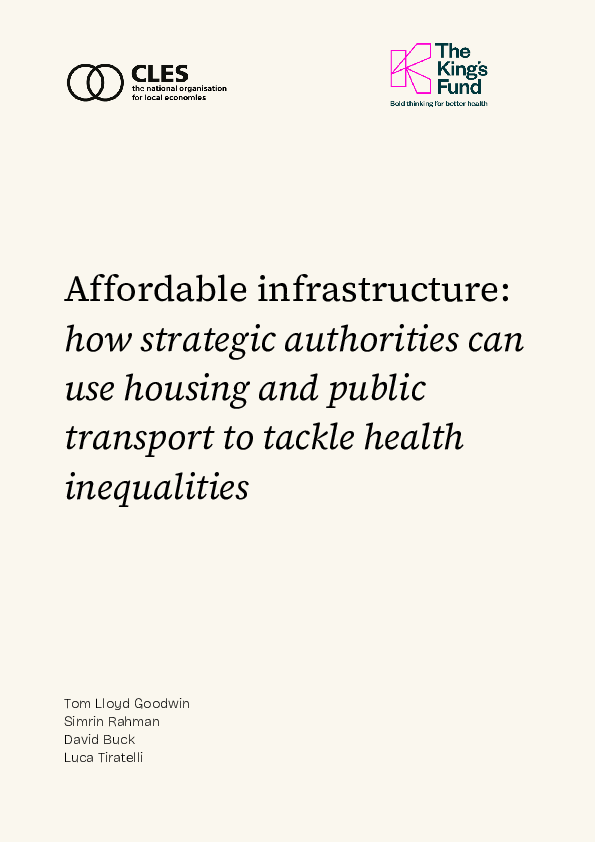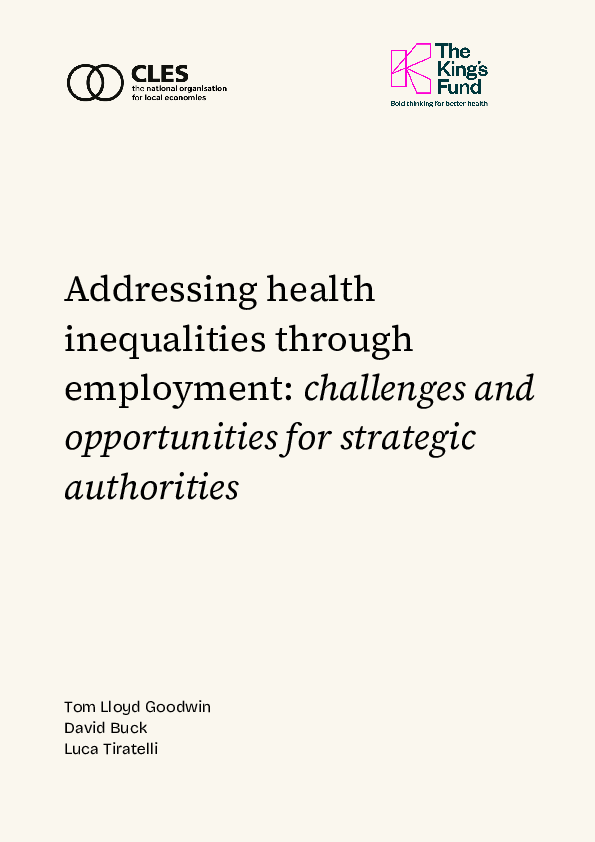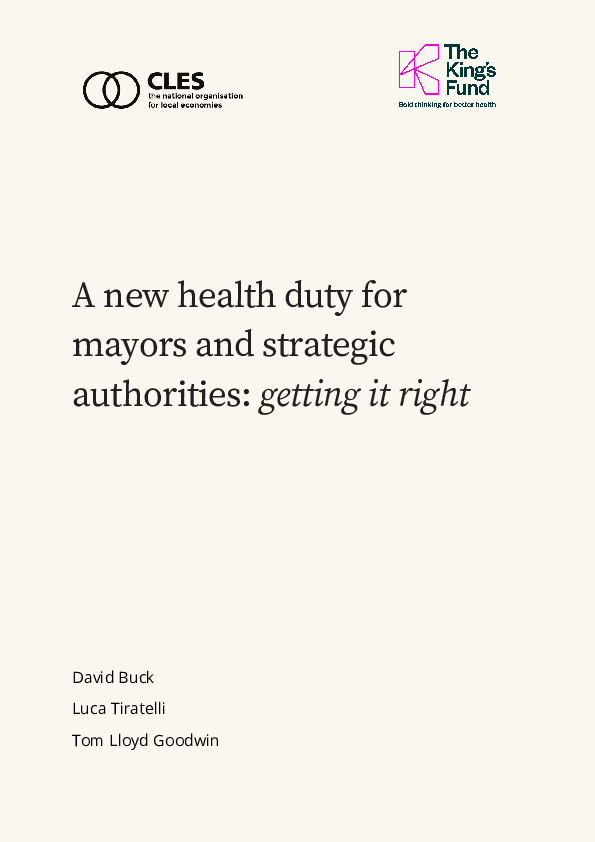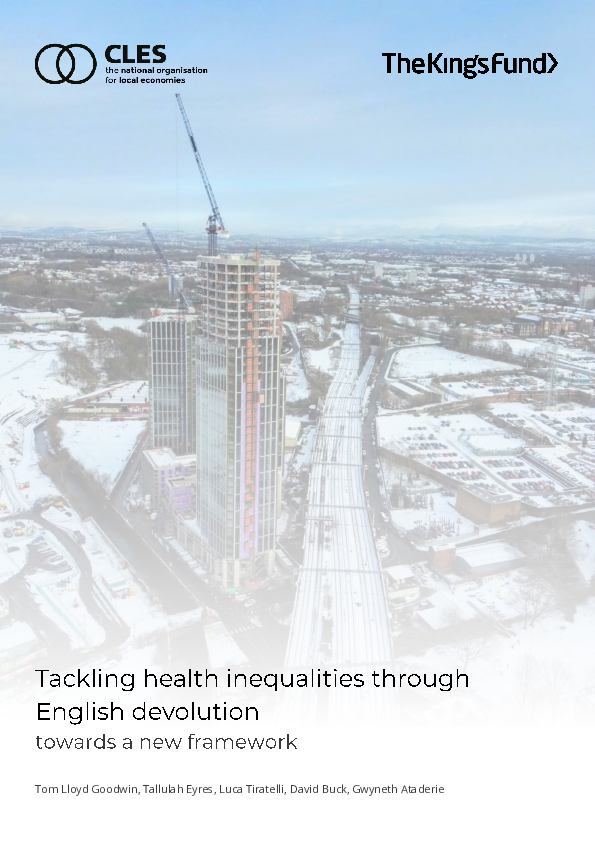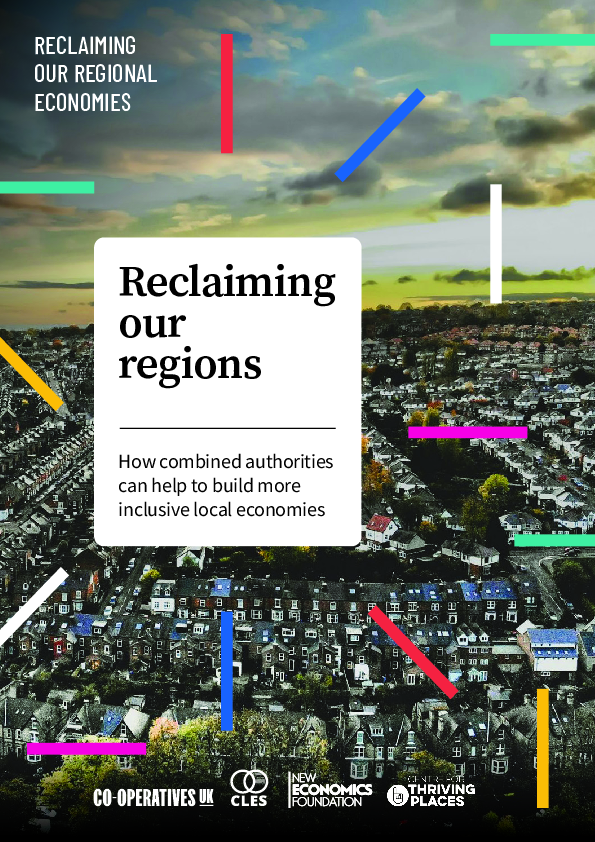Getting it right
The new health duty on strategic authorities
This article originally appeared in the Municipal Journal.
The Government’s White Paper on devolution in England introduces a commitment to create a bespoke duty related to health improvement and health inequalities for strategic authorities (SAs).
The Centre for Local Economic Strategies (CLES) and The King’s Fund are working jointly on a programme of work, commissioned by The Health Foundation, to understand the potential for strategic authorities to have an impact on health inequalities. As part of this we have thought through how this new duty needs to be designed and implemented to be successful, taking into account learning from existing duties.
“a narrow focus could actually exacerbate health inequalities”
In our earlier briefing we recognised that English devolution could have a positive impact on health inequalities, but that it is viewed as a primarily economic policy lever, to generate economic growth in lagging regions. Our evidence review showed that a narrow focus could actually exacerbate health inequalities if the distribution of growth benefits is not considered; and even in other countries where regional policy has narrowed economic inequalities, it does not necessarily follow that health inequalities narrow too. The inference is that health inequalities will not narrow simply as a result of the fact of more devolution, it needs to be accompanied by strong and consistent intent. This has been the case in Greater Manchester which has had clear success, and in other areas such as the West Midlands where health has been a core area for action of the Combined Authority.

